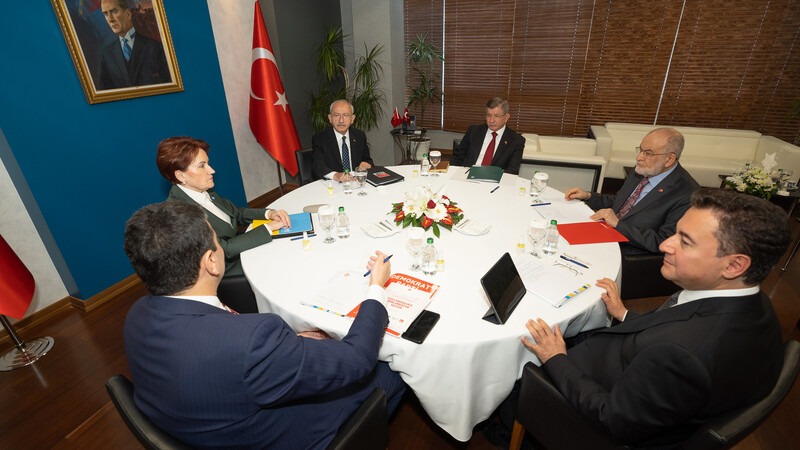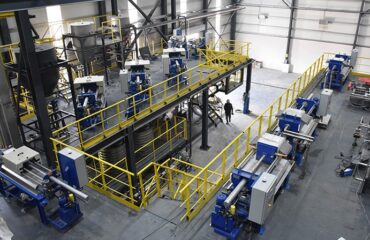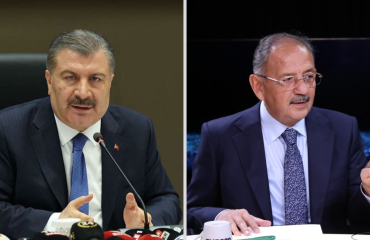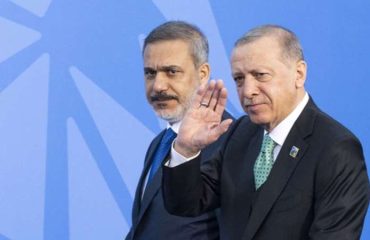

The opposition’s six-party alliance has been skidding since the autumn, the AKP started to win back its voters, who had drifted away from the ruling party in the past year, mainly in response to the economic crisis.
The six Turkish opposition parties that have formed an alliance against the ruling Justice and Development Party (AKP) and President Tayyip Erdoğan for the upcoming elections in a bid to “restore the parliamentary regime” have been regularly meeting for the last six months. The six parties’ leaders held their last meeting on November 14, as the question of “who will be their presidential candidate” has become more pressing than ever.
It was not expected that the “Table of the Six” would announce their presidential candidate after the November 14 meeting; in fact, the question makes the leaders at the table uncomfortable. The issue came to a point where even foreign diplomats or business people started to ask “if the opposition alliance has not been disclosing the candidate for tactical reasons.” They don’t want to believe that the table has not yet discussed a name.
Aside from the candidate, the leaders were expected to release the reports of the nine committees formed at the previous meeting, or at the very least an announcement that the reports had been completed.
DEVA Party leader Ali Babacan, who hosted this meeting, said before that the reports that those committees are preparing will amount to the government programme of the opposition alliance if they take power. Now they said that they would announce this report on November 28. They also set up a joint website: www.altilimasa.biz.
What came to my mind when the meeting was over was whether President Erdoğan would make any statement that day to overshadow the alliance’s efforts. But then I thought, no need for any AKP move; the Table of the Six already outshines itself sufficiently enough.
You may say better safe than sorry, but time is running out and elections are approaching, and opposition alliance is skidding.
Not just the Table of Six, the opposition is skidding
Okay, let’s not ask about a candidate, but why should we not ask why they are moving so slowly? Almost a year has passed since the first meeting of the six leaders, but they have barely made any progress. At least, that’s what it looks like from the outside.
There are other things that are observable from the outside; it’s not just that they can’t complete programme work or nominate candidates. For example, the habit of “kicking each other under the table” by the members of the six opposition parties, especially the main opposition Republican People’s Party (CHP) and İYİ Party members, who are the locomotives of the table, continues.
The alliance has been skidding since the autumn, displaying the appearance of dealing with its inner problems.
Moreover, this is valid for the entire opposition; in other words, I also include the HDP and the Labor and Freedom Alliance led by it. It is known that the condemnation issued by HDP and its imprisoned former co-chairman, Selahattin Demirtaş, after the PKK’s terrorist act in Mersin angered the outlawed Kurdistan Worker’s Party (PKK). Those who support legitimate parliamentary politics within the HDP are also uncomfortable with this. After the bloody Istanbul attack, the PKK threatened to continue its city acts.
The AKP alliance has begun to recover
While the opposition was skidding, the AKP started to win back its voters, who had drifted away from the ruling party in the past year, mainly in response to the economic crisis.
Developments justify those who say that the opposition cannot win elections solely by profiting from the reactions to the economic crisis. Political scientists are of the opinion that crises will not be enough; the opposition will have to give the voters strong hope and solid future projections, ensuring the voters that they will do better.
Erdogan knows very well that politics is the business of giving hope, and he practises it. The fact that millions of people apply for mass housing projects that the opposition takes lightly shows this. From TOGG to the Black Sea natural gas announcement or new weapons projects, it can be seen that he piled up all the ammunition between February and April. If he can turn his prominent role in the Russia-Ukraine crisis into a cash flow that can help ease the economic crisis, he can keep working on his plan to win back voters who have turned against him.
The candidate should not be underestimated
The fact that the Table of the Six does not announce the name of the candidate lowers the profile of the opposition but does not make the work of the government any easier either. The well-known mega-project Kanal Istanbul, which has been promised for 11 years, was the only big project that came out of Erdoğan’s long promoted “Century of Türkiye” meeting, where it was announced that he would announce the “projects of the century.”
The AKP cannot determine their election tactics unless Erdoğan’s opponent is clear, because the tactics to be followed for each candidate would be different.
The prominent criteria of the Table of the Six for the candidate are that the nominee must be able to win the election, be loyal to the goal of a strengthened parliamentary system, accept to act within the limits set by the Table, and not try to become the “Second Erdogan.”
There are sub-headings such as the ability to receive votes from all segments of society, from secular republicans to Sunni religious people, from Alevis to Kurds.
This could be one reason why it’s taking so long to figure out the rules and limits of the transitional period if they get power.
But the election date is certain; it will probably be pushed back to May, a month ahead, and time is running out.


